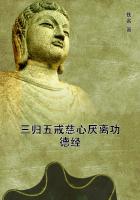THE WAY OF THE BEATEN--A HARP IN THE WIND
In the city, at that time, there were a number of charities similar in nature to that of the captain's, which Hurstwood now patronised in a like unfortunate way.One was a convent mission-
house of the Sisters of Mercy in Fifteenth Street--a row of red brick family dwellings, before the door of which hung a plain wooden contribution box, on which was painted the statement that every noon a meal was given free to all those who might apply and ask for aid.This ****** announcement was modest in the extreme, covering, as it did, a charity so broad.Institutions and charities are so large and so numerous in New York that such things as this are not often noticed by the more comfortably situated.But to one whose mind is upon the matter, they grow exceedingly under inspection.Unless one were looking up this matter in particular, he could have stood at Sixth Avenue and Fifteenth Street for days around the noon hour and never have noticed that out of the vast crowd that surged along that busy thoroughfare there turned out, every few seconds, some weather-
beaten, heavy-footed specimen of humanity, gaunt in countenance and dilapidated in the matter of clothes.The fact is none the less true, however, and the colder the day the more apparent it became.Space and a lack of culinary room in the mission-house, compelled an arrangement which permitted of only twenty-five or thirty eating at one time, so that a line had to be formed outside and an orderly entrance effected.This caused a daily spectacle which, however, had become so common by repetition during a number of years that now nothing was thought of it.The men waited patiently, like cattle, in the coldest weather--waited for several hours before they could be admitted.No questions were asked and no service rendered.They ate and went away again, some of them returning regularly day after day the winter through.
A big, motherly looking woman invariably stood guard at the door during the entire operation and counted the admissible number.
The men moved up in solemn order.There was no haste and no eagerness displayed.It was almost a dumb procession.In the bitterest weather this line was to be found here.Under an icy wind there was a prodigious slapping of hands and a dancing of feet.Fingers and the features of the face looked as if severely nipped by the cold.A study of these men in broad light proved them to be nearly all of a type.They belonged to the class that sit on the park benches during the endurable days and sleep upon them during the summer nights.They frequent the Bowery and those down-at-the-heels East Side streets where poor clothes and shrunken features are not singled out as curious.They are the men who are in the lodginghouse sitting-rooms during bleak and bitter weather and who swarm about the cheaper shelters which only open at six in a number of the lower East Side streets.
Miserable food, ill-timed and greedily eaten, had played havoc with bone and muscle.They were all pale, flabby, sunken-eyed, hollow-chested, with eyes that glinted and shone and lips that were a sickly red by contrast.Their hair was but half attended to, their ears anaemic in hue, and their shoes broken in leather and run down at heel and toe.They were of the class which simply floats and drifts, every wave of people washing up one, as breakers do driftwood upon a stormy shore.
For nearly a quarter of a century, in another section of the city, Fleischmann, the baker, had given a loaf of bread to any one who would come for it to the side door of his restaurant at the corner of Broadway and Tenth Street, at midnight.Every night during twenty years about three hundred men had formed in line and at the appointed time marched past the doorway, picked their loaf from a great box placed just outside, and vanished again into the night.From the beginning to the present time there had been little change in the character or number of these men.There were two or three figures that had grown familiar to those who had seen this little procession pass year after year.
Two of them had missed scarcely a night in fifteen years.There were about forty, more or less, regular callers.The remainder of the line was formed of strangers.In times of panic and unusual hardships there were seldom more than three hundred.In times of prosperity, when little is heard of the unemployed, there were seldom less.The same number, winter and summer, in storm or calm, in good times and bad, held this melancholy midnight rendezvous at Fleischmann's bread box.
At both of these two charities, during the severe winter which was now on, Hurstwood was a frequent visitor.On one occasion it was peculiarly cold, and finding no comfort in begging about the streets, he waited until noon before seeking this free offering to the poor.Already, at eleven o'clock of this morning, several such as he had shambled forward out of Sixth Avenue, their thin clothes flapping and fluttering in the wind.They leaned against the iron railing which protects the walls of the Ninth Regiment Armory, which fronts upon that section of Fifteenth Street, having come early in order to be first in.Having an hour to wait, they at first lingered at a respectful distance; but others coming up, they moved closer in order to protect their right of precedence.To this collection Hurstwood came up from the west out of Seventh Avenue and stopped close to the door, nearer than all the others.Those who had been waiting before him, but farther away, now drew near, and by a certain stolidity of demeanour, no words being spoken, indicated that they were first.
Seeing the opposition to his action, he looked sullenly along the line, then moved out, taking his place at the foot.When order had been restored, the animal feeling of opposition relaxed.
"Must be pretty near noon," ventured one.
"It is," said another."I've been waiting nearly an hour."
"Gee, but it's cold!"














